The Airline Game, the Energy Game, the Carbon Game and the IO Game are multiplayer online games for teaching economics (Microeconomics, Industrial Organization, Environmental Economics, Transport Economics, Energy Economics, ...), played over one to several days.
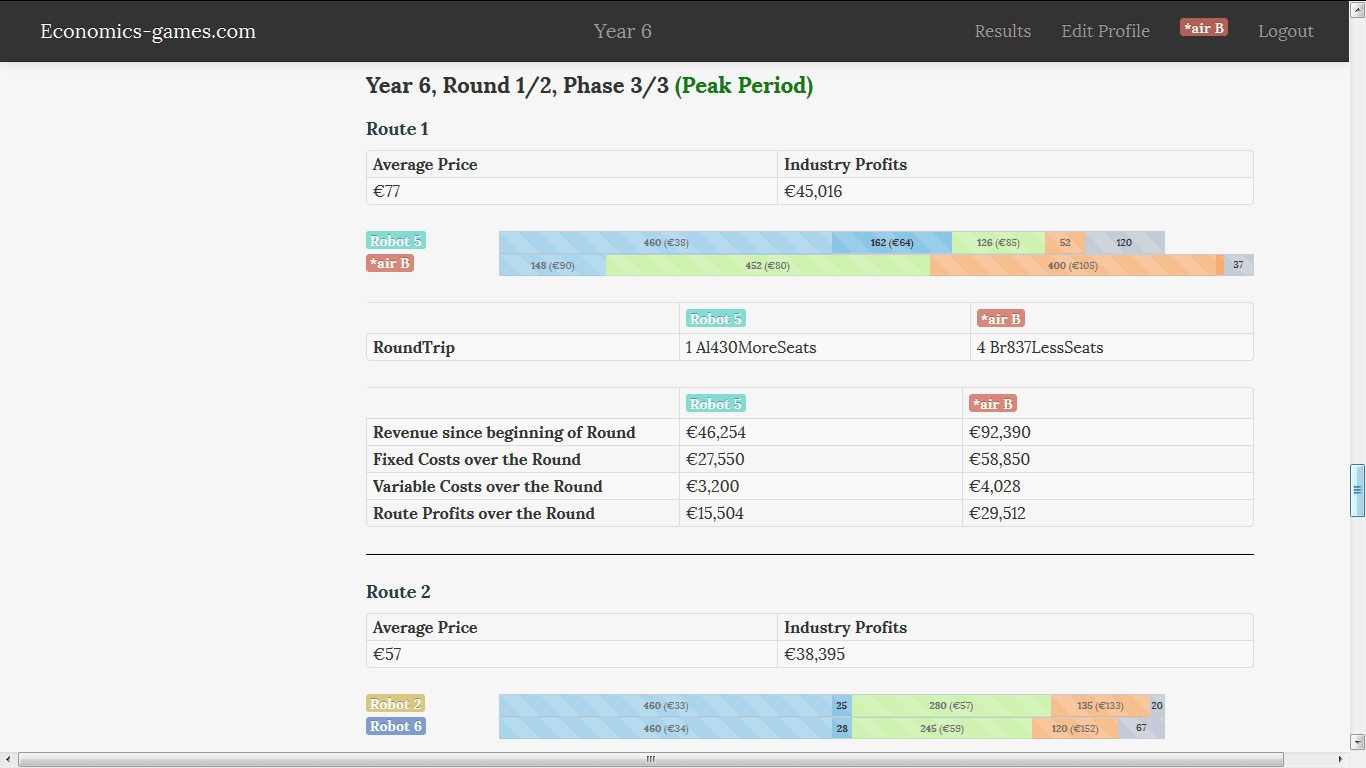
In The Airline Game, players occupy the position of airlines managers competing against one another. In the Energy Game, players are power producers and have to manage their fleet, sell their energy on a wholesale market and organize their production. In the Carbon Game, players manage competing firms producing consumer goods and generating very high CO2 emissions (in the start) under different and evolving environmental policies.
The IO game involves all these games and focuses on Industrial Organization and Microeconomics topics.
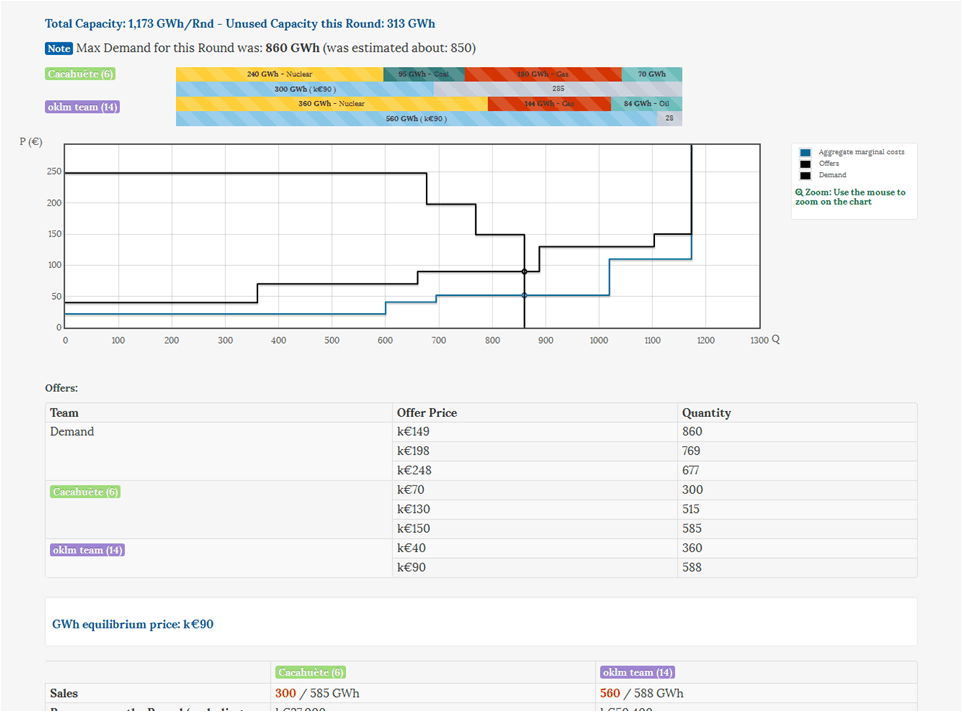
Our games are designed to maximize the readability of the impact of market structure on firms' behaviors and market outcomes: Their base frame is kept as simple as possible and new features appear one after another.
They can be used to illustrate theory, after or during lectures, but also as an introduction, before any course takes place : Theoretic debriefing phases regularly occur, and introduce economic analysis tools helping players to reach better decisions.
We aim to capture the fundamental features of the industries studied, while following the principles on which good entertainment simulation games are based (for more information about these gaming principles and about problem-based learning, there is a very interesting video by James Paul Gee on the subject).
It turns out that both are very compatible: Indeed, many industrial organization models can be easily adapted into entertaining games.
That is what we do: "Serious economics models in fun and engaging games."
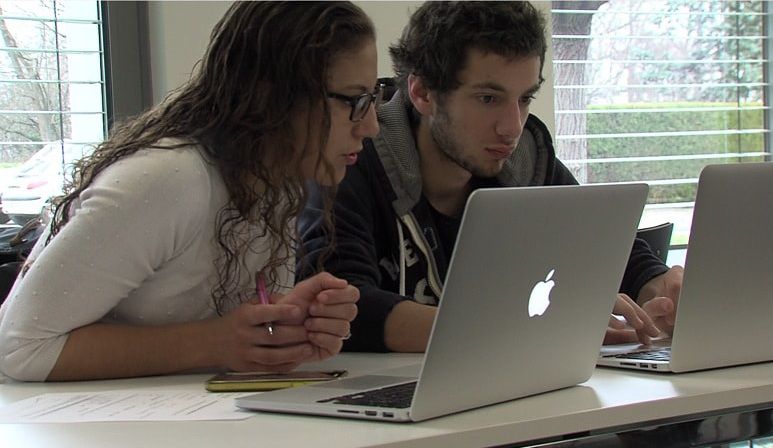
Some sessions have also been run in 10th or 11th grade or with students who had no prior background in economics.
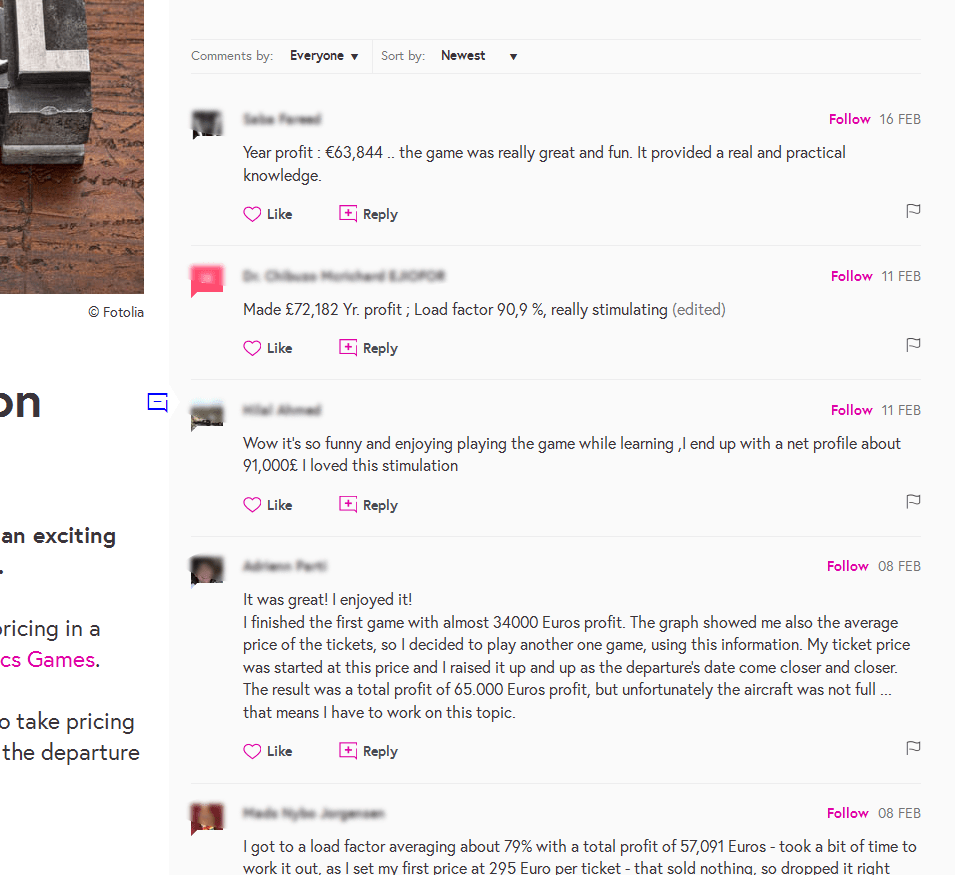
In The Airline Game's base model, players must first choose what aircraft type to lease (and how many seats to install inside) and how many flights to schedule, in peak and off-peak periods? Then during the year, they are also responsible for the (dynamic) pricing of the flights, in the revenue management phases.
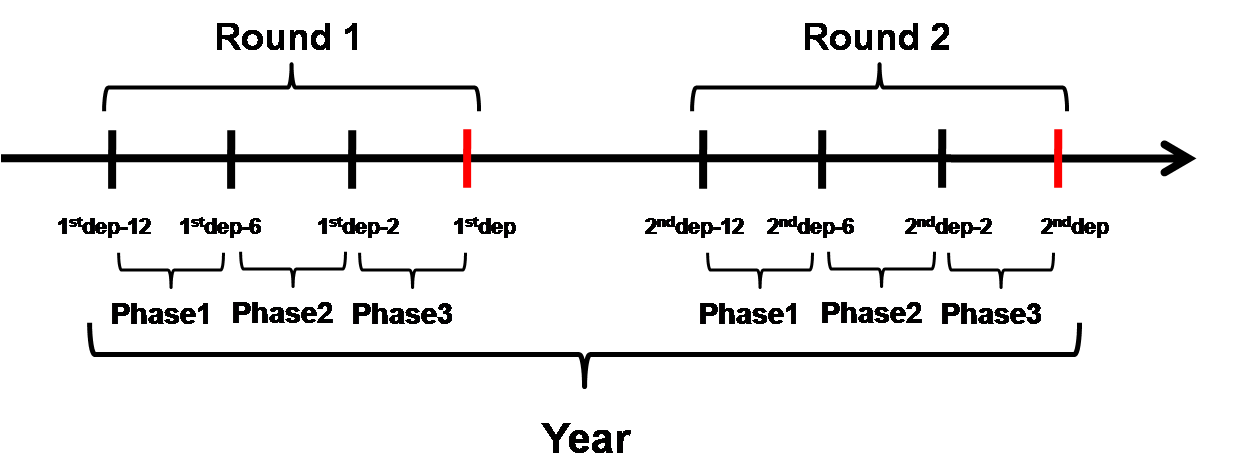
Later in the game, players may have to claim for, buy or trade CO2 emission permits or airport slots, negotiate with aircraft manufacturers, control fuel or maintenance costs, set up frequent-flyer programs or flexible fares, engage in mergers or takeovers... and face many unexpected events that require adapting their strategy.
The Airline Game's base model is kept simple in order to optimize the readability of the specific issues on which we want to focus.
Hence, the game is highly modular, and implies features and scenario events that are introduced into the base model progressively, and activated on demand.
As an illustration, while the base model relies on an extremely simple cost structure, ...
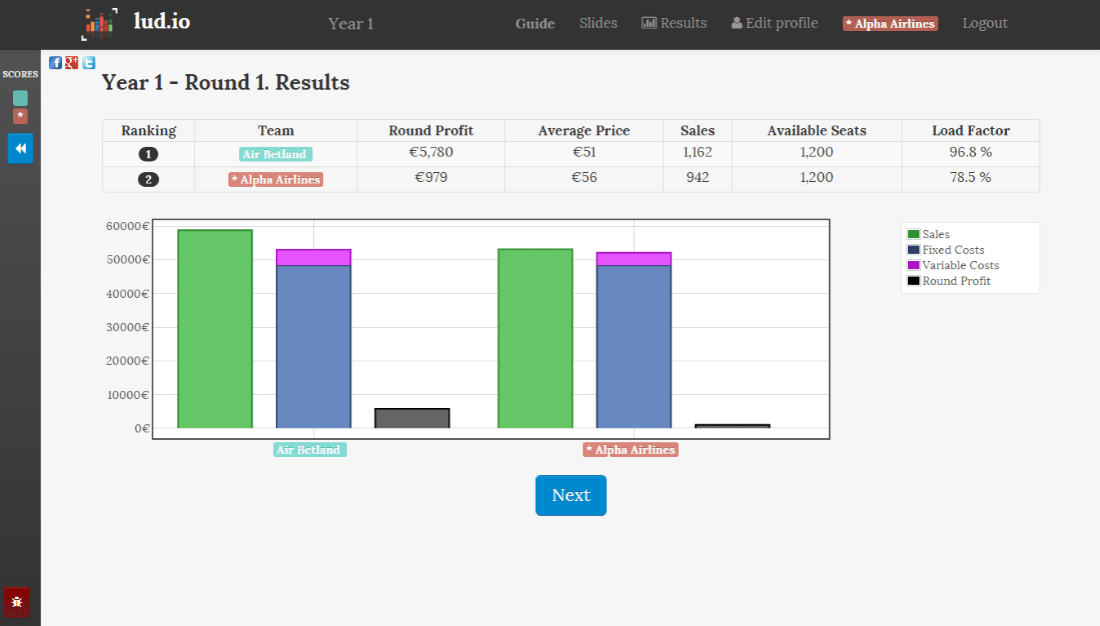
... it becomes more elaborate when new features appear.
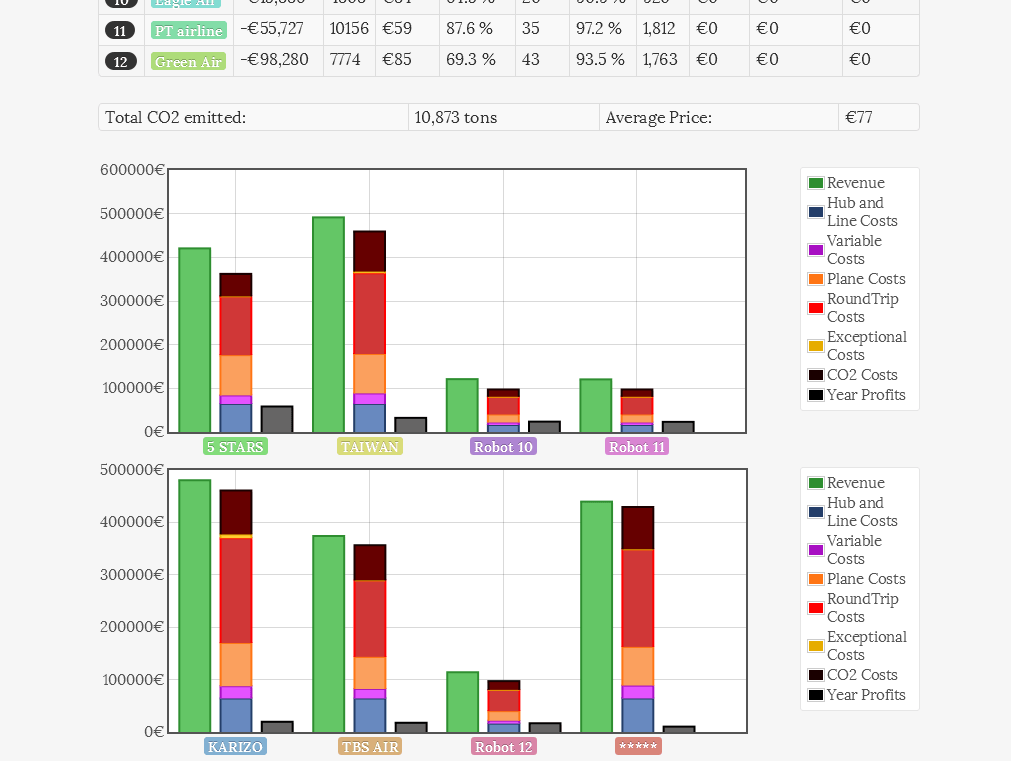
There is no need to read a manual, players get directly and intuitively into the game via a tutorial that guides them step by step through the interface and invites them to learn by trial and error.